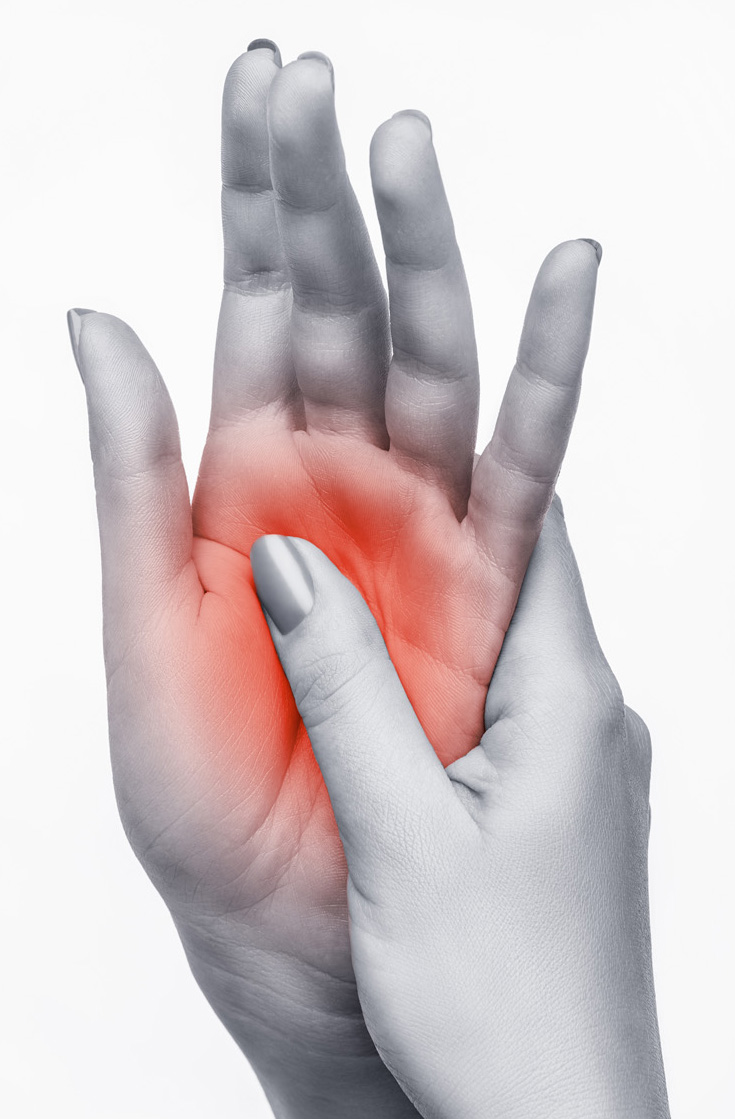Complex Regional Pain Syndrome
Complex regional pain syndrome (CRPS) is thought to be a neurologic problem that causes severe pain, swelling, and stiffness that are seemingly out of proportion to the severity of an injury or surgery. The exact causes are unknown. Type I CRPS occurs without associated nerve injury whereas Type II CPRS occurs alongside a nerve injury.
 Causes
Causes
The exact cause of CRPS is unknown. Injuries or surgeries of the hand/wrist and foot/ankle seem to be the most common triggers, and sometimes the injury or surgery can be quite minor. Symptoms may involve the entire affected limb, even though only part of the limb was originally injured.
Signs and symptoms
- Severe pain that is seemingly out of proportion to what is expected
- Persistent swelling of the affected limb, longer or more than expected
- Severe stiffness of the joints of the affected limb
- Skin changes of the affected limb (color, temperature, texture, hair)
Is there a test for CRPS?
Unfortunately, there is no single confirmatory test for CRPS. They diagnosis is usually made on the basis of clinical observations and physical exam findings. Sometimes x-rays, MRI, or nerve testing can provide additional information, but rarely confirms or excludes the diagnosis of CRPS on their own.
Treatment
You should seek care as soon as possible for symptoms of CRPS, but unfortunately, there is no single curative treatment. A wide spectrum of treatments may be recommended if CRPS is suspected. Symptoms can be very slow to resolve, even with treatment, and sometimes chronic pain or stiffness can develop as a result.
Nonoperative treatments:
Gentle hand therapy is often employed to gradually restore joint mobility and strength but must proceed cautiously as aggressive therapy may actually cause CRPS to flare up. Medications may be prescribed in hopes of reducing pain/swelling or modulating the nerve dysfunction, but these rarely adequately alleviate the symptoms on their own. Psychotherapy may help with coping skills. Pain Management specialists will sometimes perform nerve injections to help modulate nerve dysfunction.
Operative treatment:
Operative treatments are rarely prescribed for CRPS unless there is a suspected nerve injury or compressed nerve that is suspected to be triggering the CRPS. Surgery may actually worsen symptoms or cause a relapse in patients who have a history of CRPS.
Ready to confirm a diagnosis and fix the problem or just want to learn more?
Our board-certified orthopedic hand and wrist surgeons Eric Angermeier, MD and Kyle Kokko, MD, PhD, are here to help! They can often diagnose the problem in one visit, and get you started with a treatment plan. We offer a wide variety of both nonoperative and operative treatment options.
Call today for a clinic or telehealth appointment! 854-429-4263